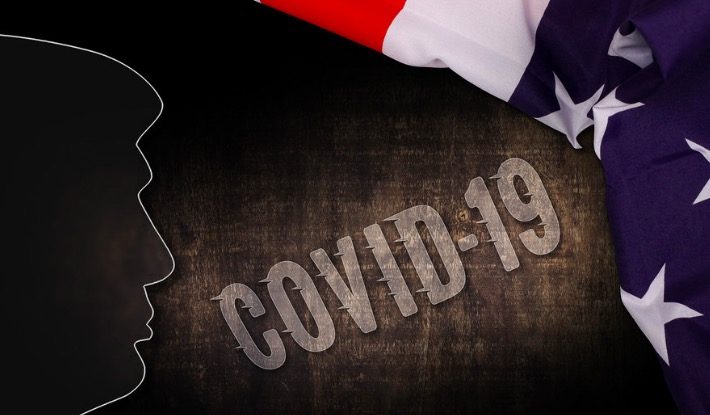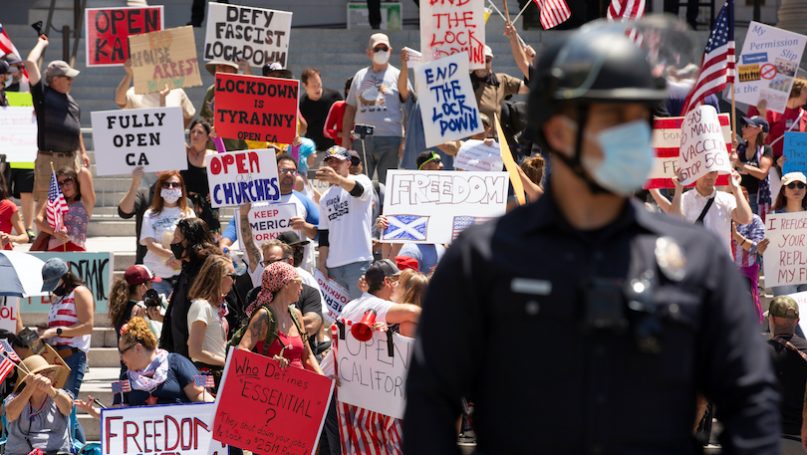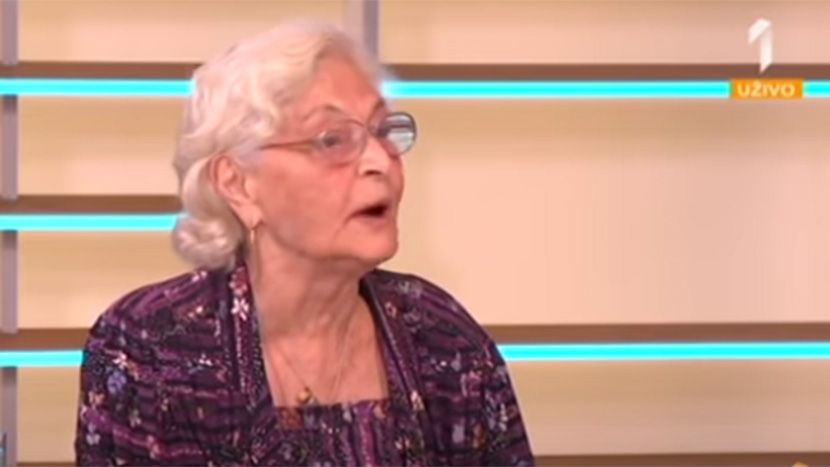Benjamin Cherry-Smith
Download PDF
Apr 3 2020 •

Image by Jernej Furman
There is no doubting the impact that covid-19 – also known as coronavirus and the novel coronavirus – is having on the world, with the World Health Organisation (WHO) declaring it a pandemic on March 11th. Governments around the world are mobilising their health systems and restricting the travel and movement of their citizens to lessen the spread. As covid-19 continues to spreads throughout global populations, the impact that the virus can have on global economies, such as the United States (US), China, and Europe, are only starting to be felt. Politically, there is a need to show leadership and to clearly communicate the precautions necessary to mitigate the further spread of covid-19 and flatten the curve. Clear communication is a skill which the US President Donald Trump appears to be lackin
For the US, the covid-19 outbreak and response have come during the lead up to the 2020 Presidential election. It is this election which sets the context for, and colours the interpretation of, President Trump’s March 11th address to the nation. Trump’s White House address furthered his nationalist discourse. Trump achieved through an ambiguous policy speech where he employed nationalist messaging and showed his favour for other world leaders who express and act out nationalist agendas. Specifically, there are two aspects of the address which further Trump’s nationalist agenda, the European travel ban and the rhetoric he uses when referring to covid-19.
The World Responds
On the policy front, the Trump administration had initially struggled to respond to the covid-19 outbreak. While Trump acted early, enacting a travel ban from China in mid-January that gave time for the US to respond; time which the administration did not adequately use. As a result of not acting sufficiently, the US is now dealing with the world’s largest number of cases with over 160,000 confirmed cases.
This response stood in contrast with China – where the virus originated – or states which are geographically close to China, such as South Korea. President Trump’s response though echoed Western states who had not yet experienced the spread of covid-19.
In China, Beijing showcased its command and control approach to containing the outbreak. Beijing locked down Hubei province, restricting the movement of 18 million people, and built a 1,000-bed hospital for covid-19 patients. According to a covid-19 tracker created by Johns Hopkins University, China is currently handling the fourth largest outbreak with more than 80,000 cases.
In the West, states have responded differently from both China and each other. They were approaching it either as an economic issue first and health issues second. Recognising the impact that the virus could have but seeking to ‘delay‘ the peak to flatten the curve, allowing time for the state apparatus to ramp up response to the virus. However, as covid-19 continues to spread throughout Europe, particularly as Italy and Spain enter lockdown, Western policymakers have adopted similar measures not just to each other, but those which were seen in China. Enforced quarantining and social distancing with ‘shelter in place‘ laws passed, closing internal borders and restricting domestic travel, and enacting travel bans and closing international borders.
The European Travel Ban
Travel bans themselves, have played a critical role in buying time for the US to react to and contain covid-19. In his national address when Trump announced the ban on European travellers into the US, but made it a point to explicitly state that the United Kingdom (UK) was exempt – this exemption has since been reversed.
Nevertheless, the European travel ban furthers two of Trump’s nationalist discourses. The first builds on Trump’s anti-immigration discourse, while also further exacerbating the tension between the US and Europe. Trump blames European counties for not acting quickly in banning travel from China. For Trump, not restricting travel from China lead to the spread of covid-19 within Europe and subsequently “seeded” the US.
As Trump did not consult European leaders before his announcement, he further exacerbated the tensions between the US and Europe. Trump and European leader have clashed over a variety of different policies and approaches to addressing crises. Most notably over meeting financial obligations for the North Atlantic Treaty Organisation, dealing with the ongoing European immigration crisis, climate policy, the Iran nuclear deal, a small trade war and signalling the start of a new one.
The second narrative Trump plays into is rewarding other leaders who push nationalist discourses. Current UK Prime Minister Boris Johnson, the former leader of the Brexit referendum’s ‘Leave’ campaign and an ardent Brexiteer, has a notably positive relationship with Trump. Trump has also previously praised Johnson for his handling of Brexit and has called the European Union “an anchor [a]round the ankle” of the UK in recent bilateral trade talks.
The initial exemption of the UK from the travel ban furthers the nationalist bond between Trump and Johnson while distancing European allies.
Covid-19 the “Foreign Virus”
In the March 11th national address, Trump characterised covid-19 as a “foreign virus.” This is not the first time covid-19 has been characterised as a foreign, with Trump and Republican politicians having called covid-19 the “Wuhan virus” and the “Chinese coronavirus.”
When Secretary of State Mike Pompeo refers to the covid-19 as ‘Wuhan virus,’ he is allegedly doing so to “counter Chinese Communist Party disinformation.” However, when senior policy adviser Stephen Miller – an immigration policy hardliner and one of the writers of the national address – pushes the ‘foreign virus’ discourse, the message being sent is clear. Trump, with the help of Miller, is politicising the response to covid-19 by pairing it with anti-immigration rhetoric, effectively casting the virus as an immigration issue first and public health issue second.
Trump has defended his use of ‘Chinese Virus‘ by saying “it comes from China, that’s why. I want to be accurate.” This reasoning runs in direct contrast to the WHO’s naming convention, which aims not to stigmatise communities. Prefacing covid-19 with either ‘Chinese’ or ‘Wuhan’ also has the purpose of deflecting blame away from Trump as it presents the covid-19 as a problem someone else caused. Deflecting blame means that Trump can create his own political cover on how he has handled the spread of covid-19 throughout the US.
As covid-19 continues to spread in the US and the administration continues its response, the 2020 political situation will become salient. Trump will formally switch from being a governing president to a campaigning president. During the 2020 presidential campaign, his handling of covid-19, both as a public health and economic issue, will be at the forefront. This is especially important, as covid-19 is already impacting presidential primaries. Georgia, Kentucky, Louisiana, Maryland and Ohio have all postponed primary elections and talks about how to handle the general election in November are underway.
Whatever the case may be, while the Democrats are still deciding who their presidential nominee will be, Trump will use every opportunity to push his nationalist discourse. His national address just demonstrates that no issue is free from his nationalist agenda, every policy not thought out requiring further clarification, and while speeches lack rhetorical clarity, they have clear messaging intent.
Further Reading on E-International Relations
ABOUT THE AUTHOR(S)
Benjamin Cherry-Smith is an Associate Editor of E-International Relations and a Master of Arts Candidate at the University of the Sunshine Coast. His research primarily focuses on ontological security theory, foreign policy, national identity, and the development and protection of norms. He can be reached via twitter at @BenCherrySmith.






 (@InsideSoCalSpts)
(@InsideSoCalSpts) 


















